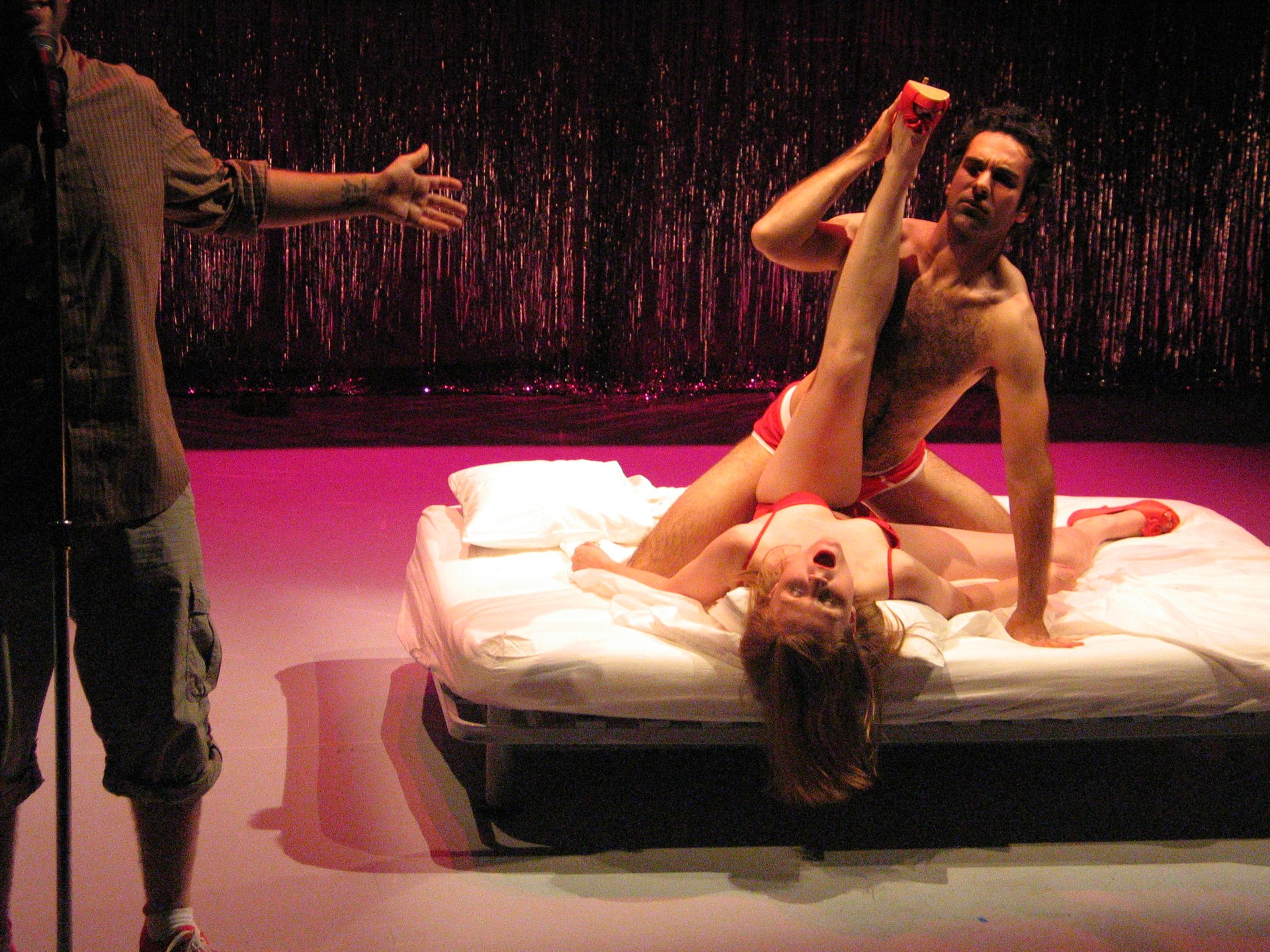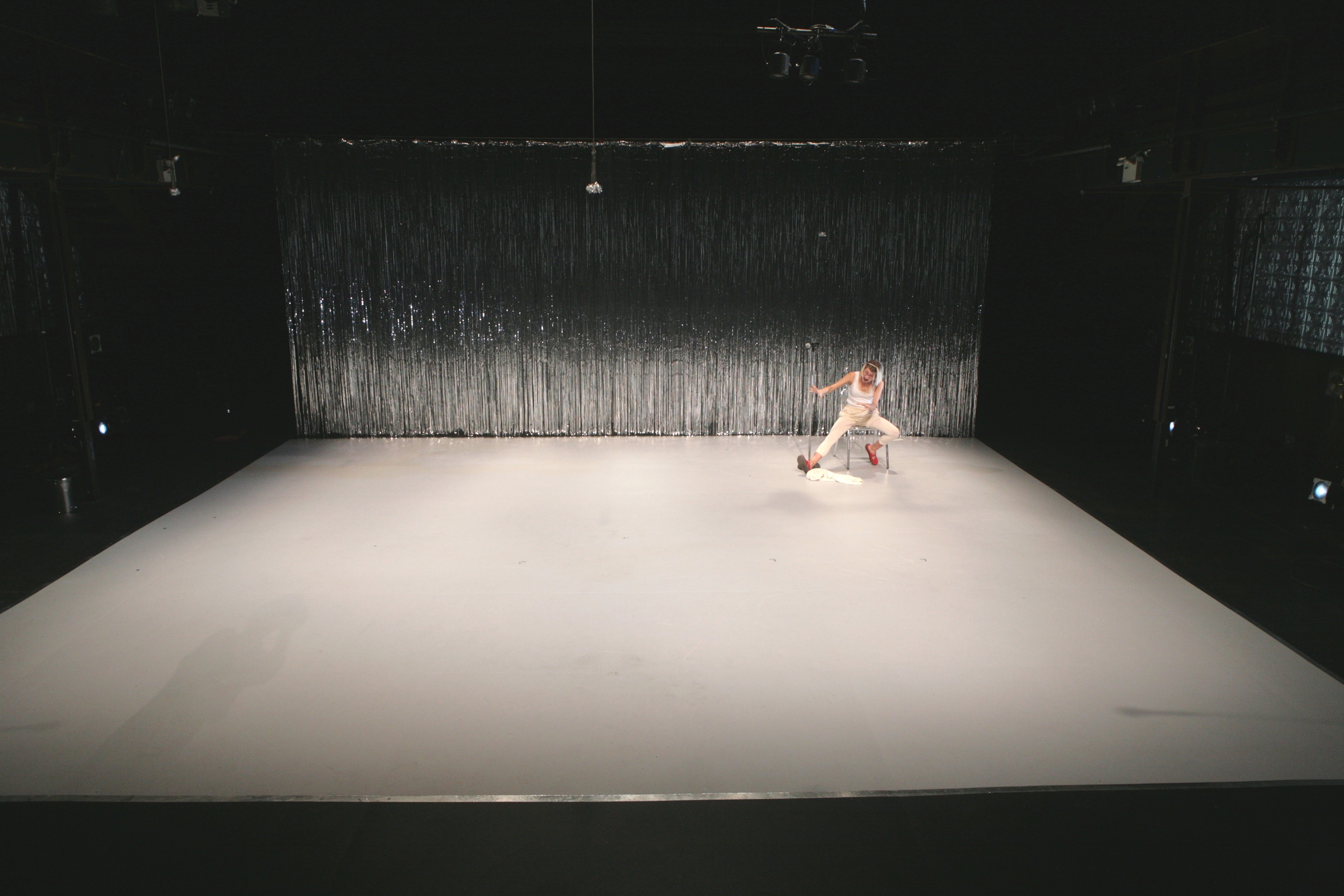Five Days in March
BY TOSHIKI OKADA
2010 La MaMa, NY
The English language premiere of Okada’s acclaimed play, translated by Aya Ogawa, original music by Dave Malloy.
With support from the Japan Foundation.
“Marvelous…An impressively integrated vision… hypnotic drama… with flash, expansive gestures and show business flair.”
“The work’s nonlinear structure, hyper-colloquial speech, and use of exaggerated gesture are a good fit for Witness Relocation, the giddily experimental troupe led by the director-choreographer Dan Safer. Aya Ogawa’s English translation retains the Japanese place names but substitutes a decidedly American inarticulateness, and the deft, wired performers act like hyperbolized versions of college kids. Safer accesses pathos as well as laughs, keeping things quick and remarkably clear as roles and points of view whirl.”
“The performers step in and out of multiple characters—offhandedly narrating into a mic, then slipping casually into scenes. (A miracle of transposed idiom, Aya Ogawa’s translation captures the studied nonchalance of New York cool-speak.) The relay style suggests that these slackers could be anyone. Meandering conversations and glancing liaisons happened all over the world as destruction began: the background noise of history. Juxtaposing world-changing events with private crises heightens the pathos of characters’ small triumphs and failures—evanescent, like performance. Director Dan Safer’s choreographies beautifully embody this idea, finding enlarged meanings for quotidian gestures: two performers shifting in chairs becomes a unison dance showing a transitory meeting of minds; staging the psychic turmoil wrought by a minor romantic crash-and-burn, Safer amplifies awkward twitches to melodramatic pitch.”
“a lingua franca for the 21st century”
“Safer’s spoken-English, American pop-culture version opens up, punches up and clarifies Five Days with a visually and aurally gorgeous production and with outrageously capacious, perversely genius performances”
“Buoyed by Dave Malloy’s puckish electronic score, Okada seems sweeter, funnier and less ritualistic than he did in Enjoy, despite a turn to overtly political and sexual elements here. Again the writer bombards us with the stop-and-go rhythms of actual speech, but cast members such as Wil Petre and Kourtney Rutherford interpret his false starts as adorable flakiness (adding to the sense of lightness), rather than slacker bummertude…Okada’s needling naturalism has its clarifying pleasures, but it took a final-act dance break to make me curl my toes with glee.”




